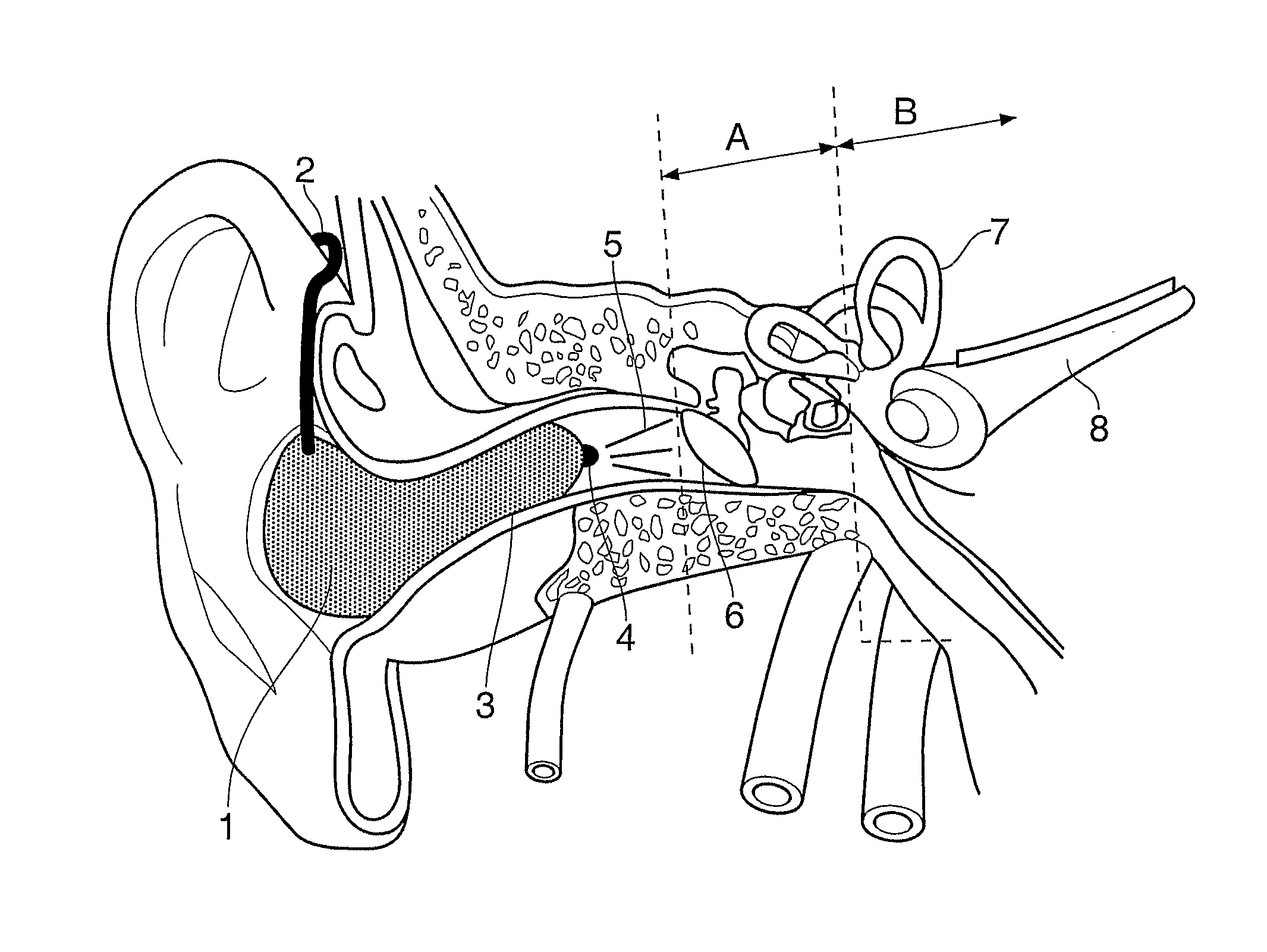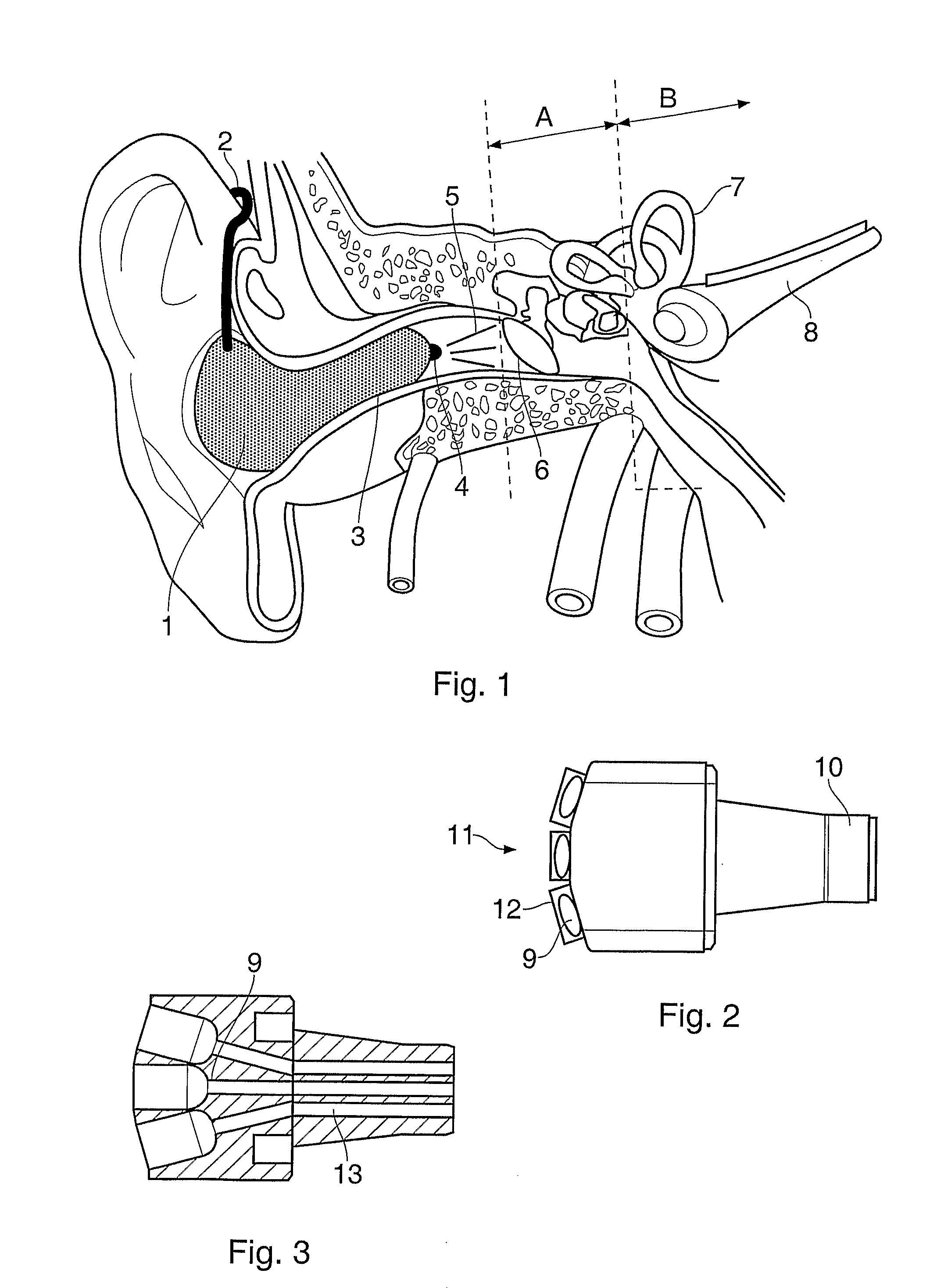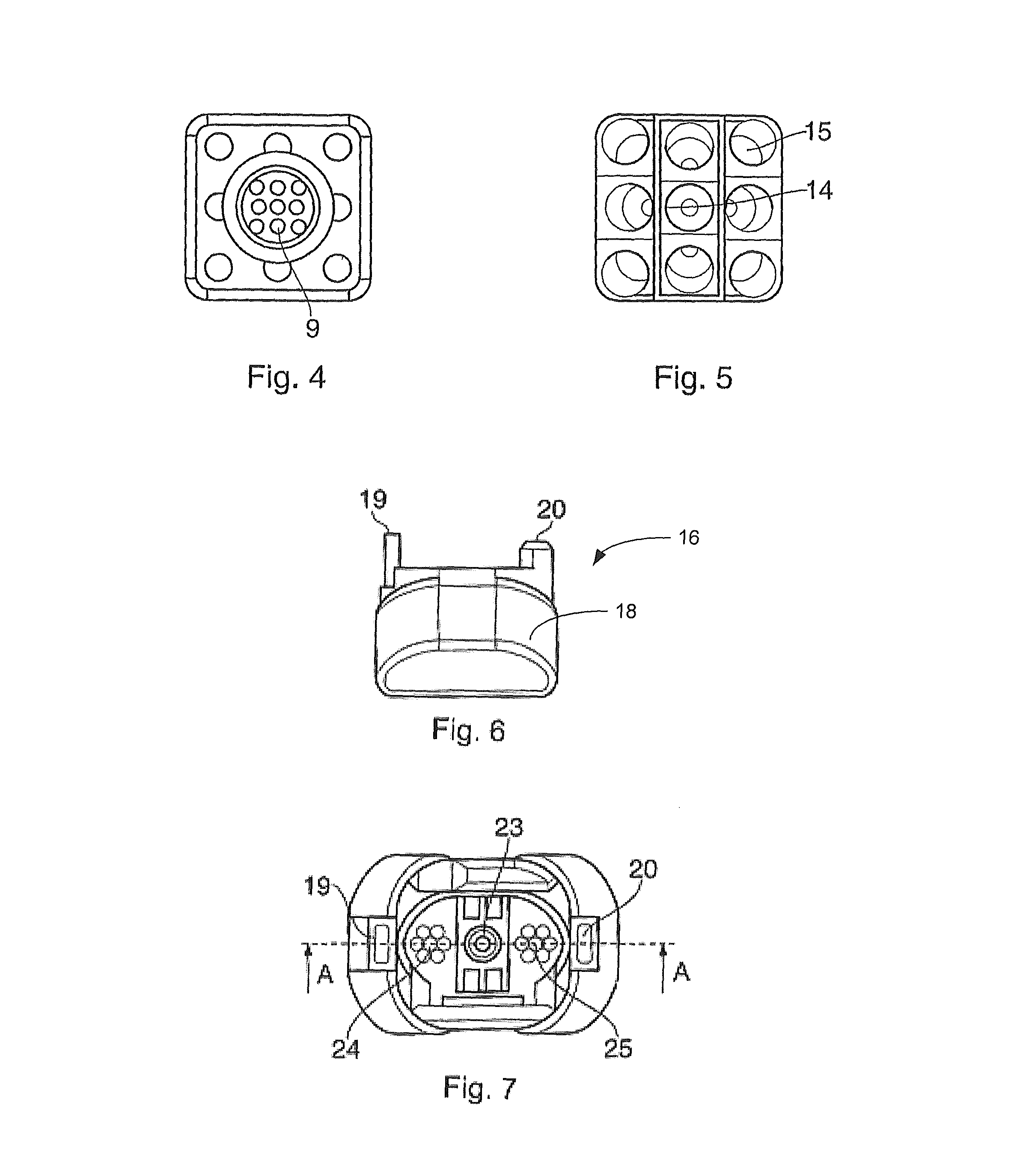Use of electromagnetic radiation in the treatment of sensory organs
a technology of electromagnetic radiation and sensory organs, applied in radiation therapy, light therapy, sleep-inducing devices, etc., can solve the problems of age-related hearing loss, no known cure for age-related hearing loss, and missed or blurred vision in the central, etc., to improve the safety of irradiating the eye, facilitate lifting or stretching of loose skin, and improve the effect of sclera
- Summary
- Abstract
- Description
- Claims
- Application Information
AI Technical Summary
Benefits of technology
Problems solved by technology
Method used
Image
Examples
example 1
[0079]We have evaluated the effect of 1072 nm light applied to the tympanic membrane and its effect on in improving hearing. Light sources were 1070 nm LED, directed into a large core fibre optic, which was encapsulated in an external auditory canal mould. The fibres were arranged so that they directed the 1072 nm light at the tympanic membrane and thence to the inner ear.
[0080]12 volunteers were selected with bilateral, largely symmetrical hearing loss. Audiometry was carried out twice to ensure accuracy of the results. Any patient with a result greater than 10 dB difference between the Audiometry was excluded.
[0081]The volunteers were then randomised to either receive an active light source in either the right or left ears and a placebo light source in the other ear.
[0082]The volunteers were then required to insert the applicator into their ears twice a day for a treatment period of 6 minutes. After 2 months the Audiogram was repeated.
[0083]Table 1 below shows the average improvem...
example 2
[0087]We have evaluated of 1072 nm light applied to the retina to improve age related macula degeneration. A method was derived, using the device of the present invention, of constricting the pupil with visible light whilst shining the 1072 nm light through the sclera onto the retina thus removing any risk of optical eye injury.
[0088]Light sources were 1070 nm LED, directed obliquely to the optical axis of the eye. The visible light was switched “on” only when the pulsed 1072 nm light was “off”, thus the two wavelengths of light would not interfere with each other. The repetition rate was high enough for the eye to perceive the lights as “on” continually.
[0089]12 volunteers were selected with bilateral, largely symmetrical age related macula degeneration. Visual acuity was carried out twice. The volunteers were then randomised to either receive an active light source in either the right or left eye and a placebo light source in the other eye.
[0090]The volunteers were then required t...
PUM
 Login to View More
Login to View More Abstract
Description
Claims
Application Information
 Login to View More
Login to View More - R&D
- Intellectual Property
- Life Sciences
- Materials
- Tech Scout
- Unparalleled Data Quality
- Higher Quality Content
- 60% Fewer Hallucinations
Browse by: Latest US Patents, China's latest patents, Technical Efficacy Thesaurus, Application Domain, Technology Topic, Popular Technical Reports.
© 2025 PatSnap. All rights reserved.Legal|Privacy policy|Modern Slavery Act Transparency Statement|Sitemap|About US| Contact US: help@patsnap.com



